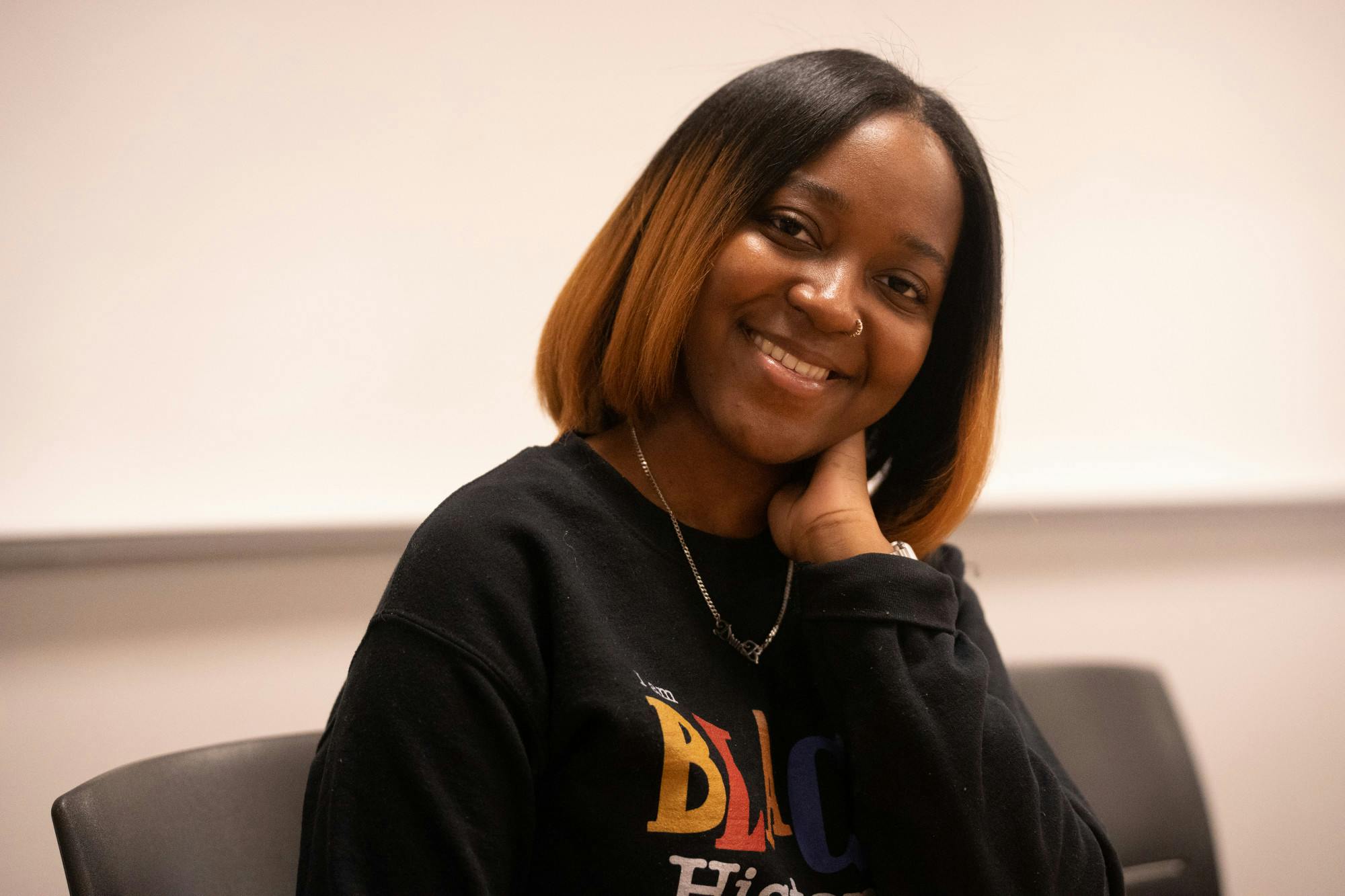Trying to find community in a university setting poses many challenges, but adapting to a predominantly white space as a Black student can bring even more.
When social relations and policy junior Drue Bender began her classes at MSU, they were all virtual due to the COVID-19 pandemic. She said she struggled to engage by turning on her camera during class.
James Madison College does not consist of many Black students and Bender often found herself being the only Black woman in her classes.
“It would bring me such anxiety to turn my camera on in class because all I saw, everybody in my class was white, and I knew that I was always a Black person,” Bender said. “I rarely said anything in class because I felt like I wasn’t prepared or smart enough to adequately speak on topics — and I always did my readings.”
Despite the impostor syndrome she felt, Bender said she was motivated by the thought that she was serving as an example for other Black women interested in politics.
“What am I doing for the Black girls coming after me also interested in politics if I leave the program?” Bender said.
Microaggressions also play a role in perpetuating the cycle of impostor syndrome and isolation in Black students. The very nature of microaggressions makes them hard to address, but symptoms like constant stomach pain, headaches and difficulty sleeping may be a side effect of fatigue after facing racially insensitive spaces and individuals, said Tenille Gaines, associate director of CAPS, said.
"It's due to the fact that that is a traumatic experience," Gaines said. “The more and more it happens on a day to day basis, now we're leading into some racial battle fatigue.”
This psychosocial stress can cause Black students to feel unseen and unheard, Gaines said.
“I’m very desensitized to it,” Bender said.
Another common part of the Black experience of adjusting to white spaces is code switching, kinesiology freshman Valencia Morris said. After arriving on campus and becoming immersed in a predominantly white space, Morris said she employed the code switching she learned as a child to avoid being stereotyped.
“(It’s) generational trauma ... it’s a full family thing,” Morris said. “(My mom) used to say, ‘talk right.’”
For Morris, code switching manifests as speaking at a lower volume, less movement of her head and excluding the use of her hands while she talks.
“My mom would sit me down and say … we’re going to learn where and when to use ‘ain’t’ and ‘y’all,’” Morris said.
Bender said she felt anxious her opinion would be taken out of context and she would be stereotyped in political class environments. In her freshman year Zoom classes, she avoided anxiety by not contributing to class discussions.
Alexis Travis, assistant provost and executive director of University Health and Wellbeing, said she has seen strides in the Black student community to open up spaces where they can focus on Black mental health and be vulnerable about their suffering.
“When we’re talking about Black students, we’re not talking about one identity. We’re talking about many different cultures, many different shades,” Travis said.
Gaines said what is causing isolation for one may not be the cause of isolation for another. Because of this, they recommend seeking out communities or clubs that make that individual the most comfortable on a case-by-case basis.
“I found community through (the Black Students’ Alliance),” Bender said. “Being in those spaces allowed me to be able to show up as my genuine, authentic self, even in predominantly white spaces … it really made me feel a sense of belonging and empowered me.”







